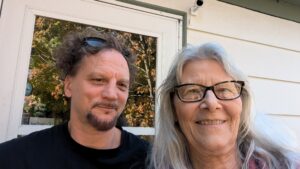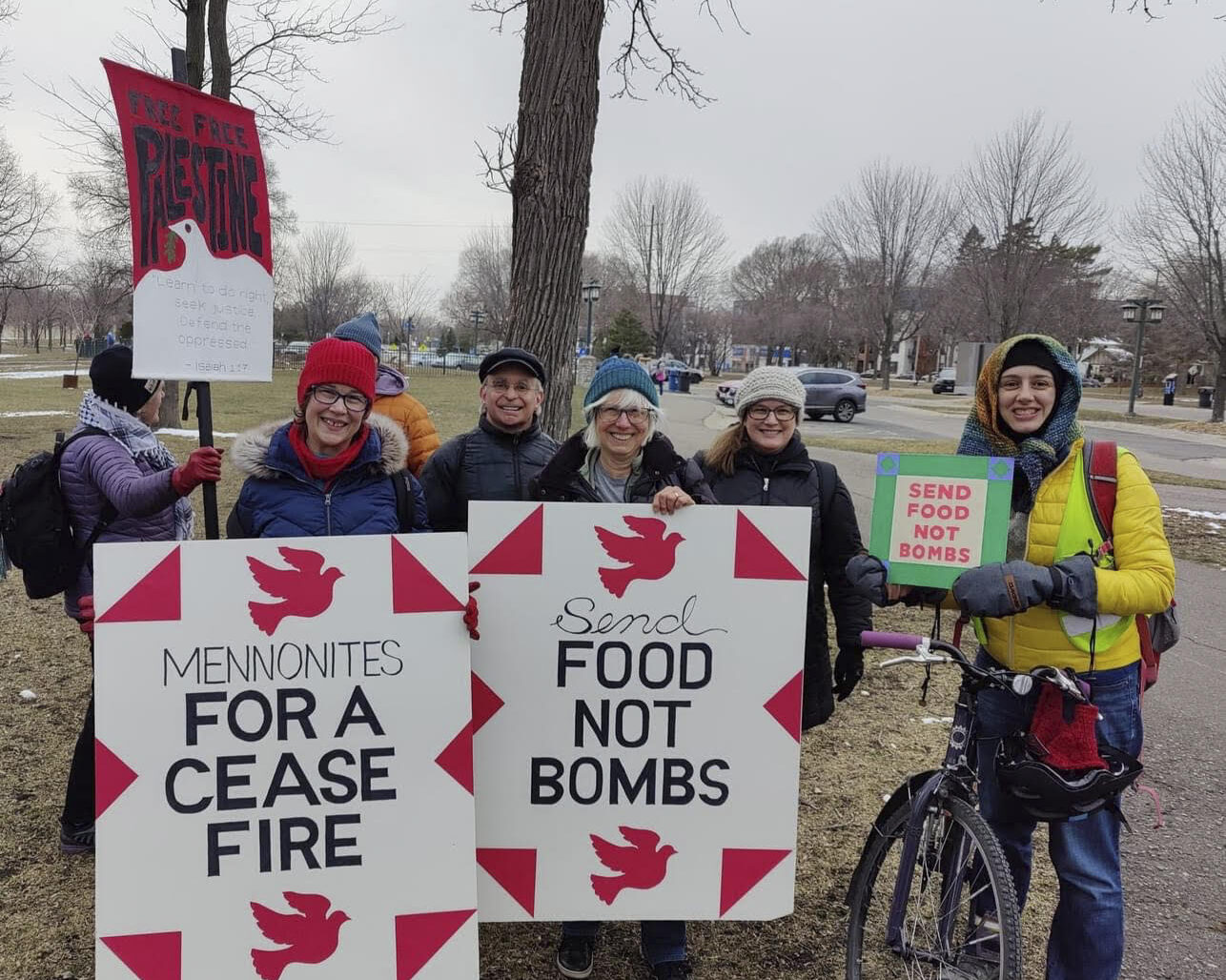
Mark Conner and Elaine Klaassen
BY MARK CONNOR
Elaine Klaassen has written a book that captures readers in the freedom of her vision, grips us in the rhythm of her voice, and holds us in the arms of her love, releasing us in forgiveness and redemption. “La Penultima” is a memoir that had to be written, for Elaine herself and the people she’s touched, recording in words the picturesque life of a woman whose influence —from Minneapolis to New York, from Kansas to Spain and beyond — has touched many through her gentle simplicity, rooted in Mennonite heritage that, even in defeat, reaches victorious consolation.
Much input from friends brought her book to the finish line. Thanks to the suggestion of her friend Terry, the nine chapters are called galleries, in which the relationship between the separate fragments is like that of the relationship between paintings in a gallery; they are grouped according to themes.
A quote from her friend Gary, “Exposing your soul is the most valuable gift one can give to another,” is a thread that runs throughout. In “La Penultima”, Klaassen does expose her soul to us, at the risk of our judgment, winning our approval. She bravely bares her humanity, recounting hopes and dreams and triumphs and failures, turning even her transgressions into a grand wish and simple prayer for everyone.
The title of Klaassen’s “memoir-like document” came from Miguel (raised Michael Joseph Hagerty in suburban Chicago), who, Klaassen explains, “was going to write a book called The Penultimate (La Penultima). It was going to be the last thing before the last thing. And I think it was going to be everything he knew up until the point where he knew everything he was ultimately going to know.” Elaine lived in Spain from 1969 to 1981, mostly with Miguel, and learning he died in 2010, she knew she’d eventually write this book.
After studying piano with concert pianist Ricardo Requejo in Madrid, Spain, working as a professional piano teacher and composer and playing piano in various churches, Klaassen has spent most of her time helping and learning from the community around her. She has worked with community groups, Indigenous people and communities of color, collaborating on peace, justice and environmental issues, writing about much of it in her Southside Pride column. This is fueled by her Mennonite identity, even though in her early 20s she left a Mennonite marriage to a pastor as she entered the first coed graduate school class at the University of Notre Dame, radically witnessing to peace on a path she carved out on her own terms.
There have been “five important Michaels in my life,” she explains. The other four include Mikey from grade school, “Mike, the father of my children; Michael who calls me a spirit: and Mischa, who now fills a bucket of happiness in my psyche.” Although divorced at 65 from Mike, father of their daughters, she enjoys companionship with him, living in the same house divided evenly with separate entrances, and his generous provision of mechanical skills that keep her equipped with a smoothly running car. Unorthodox as that seems, it’s indicative both of Klaassen’s singular style and the adventurous story she relates.
As each gallery chronicles early childhood to the present, in reverse order, a memory in Gallery VII (Justice = Peace) entitled “World Hunger: 1971,” recounts riding a motorcycle with Miguel into southern Spain, arriving late-night in Talavera when restaurants and stores are closed, and lamenting intense hunger. She admits, “Years later it blew my mind that our thoughts didn’t automatically go to the plight of those who suffer hunger on a daily basis,” and the personal quality of Elaine Klaassen, a quality evident throughout the telling of her tale, is definitively clear — she has the conscience of a saint.
Hopefully, the book will be in the public library soon, as well as in independent bookstores, but for now it’s available on Amazon and directly from the author at [email protected]. “La Penultima (With a Rose in its Eye)” is well worth reading and a great Christmas gift for someone you love.
Mark Connor began writing for Southside Pride and Pulse of the Twin Cities in 1997 when, exhausted from organizing an anti-Margaret Thatcher demonstration with Minnesotans for a United Ireland, he thought, “I’ll bet I can work for those guys and make my rent, which is better than being an activist for free.” After publishing a story about the Irish Political Prisoners Children’s Holiday program in Southside Pride, and a feature on legislative efforts to compete with American Indian casinos in Pulse, he wrote many articles about local, national, and international politics and culture, and a couple of articles about boxing. From January through May 2001, he was assistant managing editor of Pulse and managing editor of Southside Pride. He continued providing freelance articles for both publications through 2003, grateful for the experience and the friends he made at the publications.






















